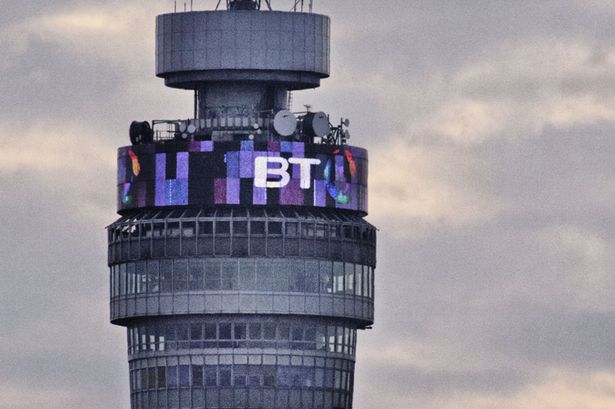BT Pledges To Extend Fibre Coverage And Offer 10Mbps Broadband To All

BT outlines future plans for broadband, including better coverage for rural areas and faster speeds for others – but it warns it needs regulatory help
BT wants to bring speeds of between 5Mbps and 10Mbps to every home and business in the UK as part of wider plans to expand fibre coverage beyond the government’s existing 95 percent target by 2017 and to deliver ultrafast broadband of up to 1Gbps to 10 million homes by the end of the next decade.
The existing universal service obligation is 2Mbps, but Ofcom, politicians and industry experts have suggested broadband users need at least 10Mbps to access the most popular Internet services.
Going further
 “We are already supporting the government in a 2Mbps requirement,” said BT CEO Gavin Patterson. “But of course people quite rightly want more than that. We hear calls from Ofcom and Westminster for a new universal standard. We would love to be able to deliver that.”
“We are already supporting the government in a 2Mbps requirement,” said BT CEO Gavin Patterson. “But of course people quite rightly want more than that. We hear calls from Ofcom and Westminster for a new universal standard. We would love to be able to deliver that.”
This will be achieved through new technologies currently being researched, including long reach VDSL that boosts speeds on long copper lines and wireless to the cabinet, as well as a new satellite broadband service which wiull be launched in some parts of the UK by the end of the year. BT will also also migrate some users off old ADSL1 technology onto ADSL2 and fibre.
Patterson praised Openreach’s commercial and government-assisted rollouts of fibre and said it was “on track” to meet and exceed the 95 percent target set by government. Indeed, Patterson claims that if all the money BT has returned to local authorities after takeup predictions exceed initial estimates is reinvested into fibre, 96 percent coverage could be achieved by 2017.
“There are still about two million homes that aren’t on the mains gas network,” he claimed. “By 2017 there will be more homes in the UK with fibre than mains gas. That is a huge achievement.”
BT has won the vast majority of government funding available through Broadband Delivery UK (BDUK), and says Patterson says the company would be willing to participate and invest more of its cash into broadband if the programme was extended.
“We believe fibre should go further,” he stated. “If the current government funding model was to be continued … we are willing to commit funding to assist that process.
“If there were to be further public funding, we do not assume all that funding would go to BT. We would welcome other players.”
Ultrafast Britain
Patterson also outlined BT’s plan to bring ultrafast broadband speeds to ten million homes, more than the initial target it outlined earlier this year. BT is currently holding trials of G.Fast technology, which increases speeds on copper cables to those approaching fibre. Most ultrafast-enabled properties, should have access to 300Mbps to 500Mbps by 2030 with 1Gbps possible if the building has access to fibre to the premise (FTTP).
 The company’s research and development (R&D) efforts are working to make it more cost-effective to deploy FTTP, including hardware improvements and software that makes it easier to plan such deployments.
The company’s research and development (R&D) efforts are working to make it more cost-effective to deploy FTTP, including hardware improvements and software that makes it easier to plan such deployments.
“BT moved early on superfast investment. We must do the same again,” declared Patterson. “Getting ultrafast speeds isn’t just about G.Fast. We’re also committed to FTTP if that is the right solution.
“Our ambition is ultimately to extend ultrafast to most of the UK by the end of the next decade. We need a supportive regulatory regime to underpin this investment.”
Future Regulation
Naturally, BT’s commitments do not come without caveats. Ofcom is currently undertaking its biggest review of the UK communications market for a decade and is facing calls from BT’s rivals to initiate the process that could result in the formal separation of Openreach.
TalkTalk, Sky and others believe the ownership of Openreach hands BT an unfair advantage in fibre and harms consumers and businesses due to a lack of investment.
BT refutes these suggestions and says it has invested billions of pounds in digital infrastructure and that Openreach has benefited from access to BT’s resources.
Patterson said BT would invest more in Openreach this year, just as it did the year before, and that BT was the UK’s third largest spender in R&D at £500 million, behind only Rolls Royce and Unilever. These investments he said, had helped make the UK’s broadband rollout a successful one and current research efforts would help it deliver the pledges it had made.
“This success story is no accident,” he claimed. “Ofcom deserves credit to help the UK have the most competitive communications market in the world.
“We think the UK has a bright future but only if we make the right decisions today. “We need a regulatory structure that allows [long-term] investment.”
What do you know about fibre broadband? Try our quiz!